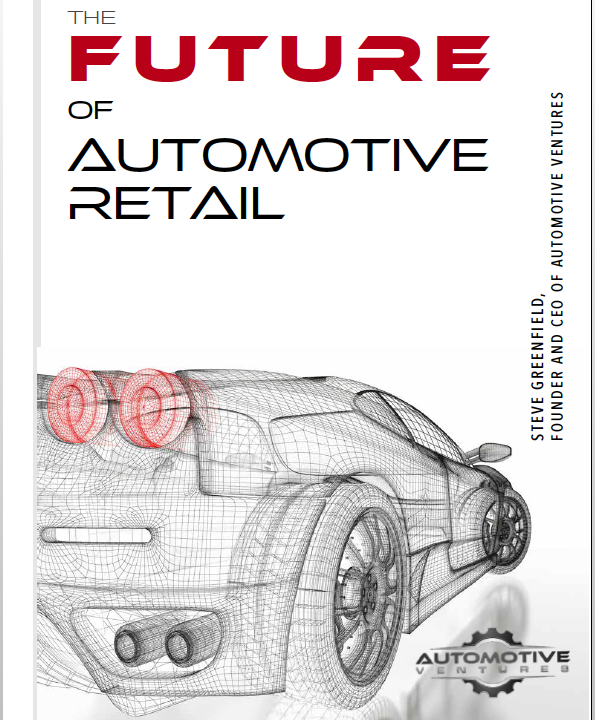Welcome to another edition of The Future of Automotive, with Steve Greenfield, Founder, and CEO of Automotive Ventures, where I put recent automotive and mobility news items into context, in terms of the broader thematic areas that will potentially impact the industry.
I’m glad that you could join us.
If you’ve been following the news cycle this past week, you wouldn’t have been able to avoid the news that EVs are backing up on dealership lots, and the discounts have begun.
Many of the automakers are just getting their EV production online.
As a result of this supply/demand imbalance, Ford, Tesla and other automakers are lowering prices to lure in buyers.
Let’s take a step back for a minute.
After struggling to find enough batteries and other parts for the past couple of years due to the COVID-induced supply chain bullwhip effect, automakers are finally beginning to churn out large numbers of electric cars and trucks to start meeting anticipated EV demand. More than 30 new EV models will arrive in showrooms just this year.
What automakers need now are more actual EV customers interested in buying this inventory.
Granted, sales of electric vehicles are actually increasing (they climbed about 48% in the second quarter from a year earlier), but they are NOT rising fast enough to keep pace with the number of vehicles rolling off assembly lines. And inventories of unsold vehicles are starting to pile up.
Cox Automotive reports that currently more than 90,000 battery-powered cars and trucks are sitting on dealer lots, which is four times as many as a year ago. That’s about 103 days of supply for EVs, compared with about 50 days for the industry as a whole.
So what choice do OEMs have, facing softening EV demand?
It seems that we’re quickly reverting back to the pre-COVID playbook of cutting prices and offering more and more incentives.
Early this week, Ford reduced prices of its F-150 Lightning by up to $10,000, or as much as 17%. Ford is also offering discounted interest rates of 1.9% to 3.9% financing on Lightnings to stimulate demand.
These moves follow several rounds of price cuts by Tesla this year. In response, when Ford dropped prices on their Mustang Mach-E electric SUV, it didn’t stimulate much consumer demand for that vehicle.
So, the jury’s out on whether discounts are going to be effective in moving some of this mounting oversupply of EVs.
And Tesla isn’t going to take Ford’s move this week laying down, either.
As evidenced by multiple waves of price reductions this year, Tesla has fatter profit margins than almost any other automaker, giving them the luxury of dropping price to maintain (or even grow) market share, and still turn a profit.
This compares to Ford, who is forecasting a $3 billion dollar loss across their EV division this year, even without aggressive discounting. Thank goodness Ford still has their profitable internal combustion engine business, fueled by the popular F-150 and Mustang, to offset their massive loss in EVs.
Last but not least, it isn’t lost on me that Ford decides to drop prices dramatically on the F-150 Lighting the same week that the first Tesla Cybertruck rolls off the production line. Coincidence or not? I’ll let you decide.
As we’ve discussed before on this segment, with 150 new EV models hitting the market over the next two years, we’re about to test what actual consumer demand is for EVs. I suspect we’re going to see a bloodbath of oversupply, and then the incentives will really mount.
If you have any friends or loved ones who want to buy an EV, a little bit of advice. Tell them to wait just a little bit longer – I am certain there are going to be some screaming deals out there as we dramatically oversupply the market.
Companies To Watch
Every week we highlight interesting companies in the automotive technology space to keep an eye on. If you read my weekly industry Intel Report, I showcase a few companies each week, and we take the opportunity here on this segment to share those companies with you.
Today, we have two new companies to watch: Biped & SKU Caster.
Biped
Biped represents why I really love working in the Mobility space, and highlights just how far we’ve come with technology to help those who may not be as mobile as others.
It sounds kind of space-aged, but Biped produces a smart harness, worn on the shoulders, bringing autonomous driving features to humans who have disabilities.
The device is an all-in-one mobility aid for people with visual impairment, spatial neglect or hearing loss and for wheelchair users. It’s a smart harness, worn on shoulders, that uses self-driving technology from Honda Research Institute to help avoid obstacles with short sound feedback, and get GPS instructions.
I love Biped, because it’s a clever use of automotive ADAS technology applied to a personal use case to help those with disabilities to avoid obstacles, anticipate collisions, understand your immediate surroundings, and get navigation instruction, all through 3D sounds.
You can check out Biped at www.Biped.ai.
SKU Caster
Across the automotive industry, we all realized just how fragile the supply chain has become.
SKU Caster looks to alleviate this by focusing on AI-powered Inventory Forecasting.
Standard inventory forecasting software has a hard time transfering an organization’s inside knowledge of specific products, markets, trends and cycles into their inventory forecasts.
At SkuCaster, they’ve created a machine-learning model that incorporates an organizations’ knowledge, removing any bottlenecks to knowledge transfer on inventory demand forecasting.
Often, supply chains and existing systems are too slow to adapt to dynamic changes of customer demand.
Traditional forecast methods in ERP solutions cannot keep up with the rapid changes of demand down to the individual SKU level.
With SKU Caster, companies can gain visibility, accuracy & be proactive on their inventory forecasting.
You can check out SKU Caster at www.SKUCaster.com.


If you’re an AutoTech entrepreneur working on a solution that helps car dealerships, we want to hear from you. We are actively investing out of our new DealerFund.
If you’re a dealer who wants to invest in early-stage AutoTech companies that benefit your business, let me know. We are still accepting new investors into the DealerFund.
If you’re interested in joining our Investment Club to make direct investments into AutoTech and Mobility startups with small checks, join the Club. There is no obligation to start seeing our deal flow.
And don’t forget to check out my book, The Future of Automotive Retail, on Amazon.com.
Thank you for tuning into CBT News for this week’s Future of Automotive segment, and we’ll see you next week!



